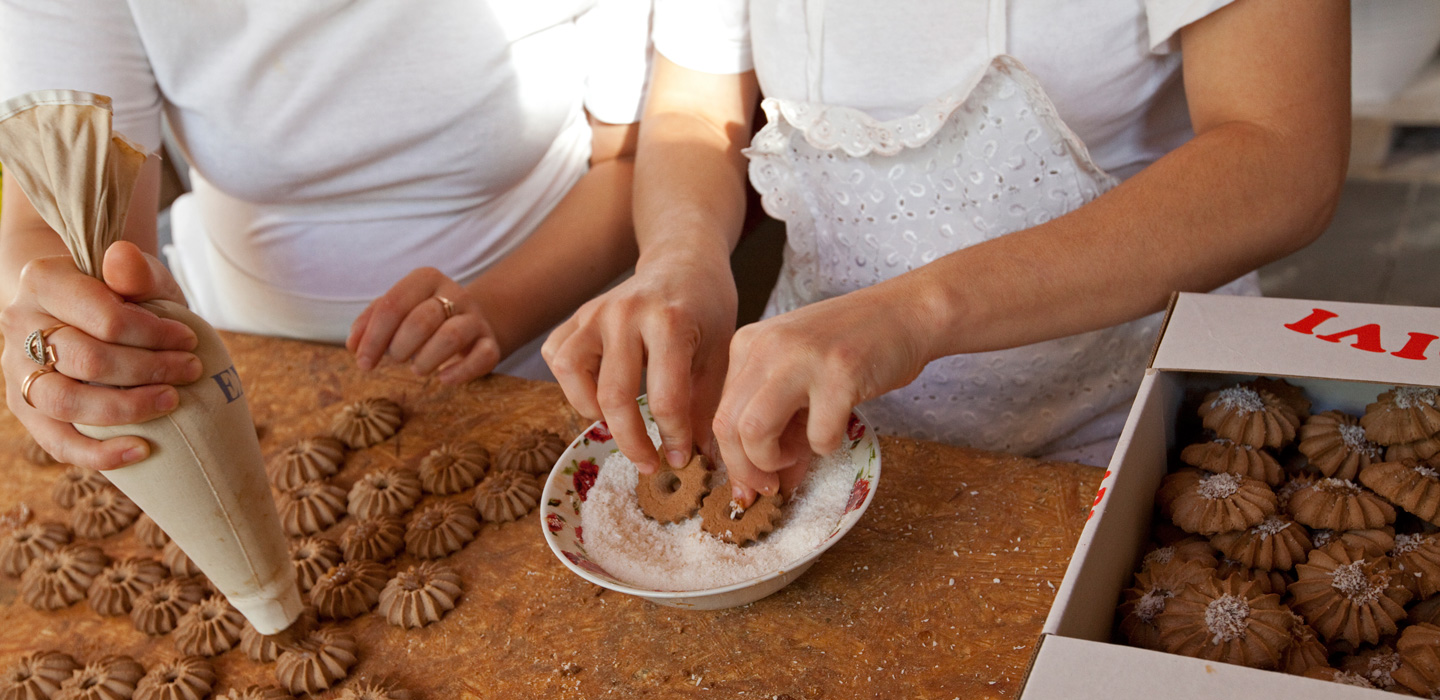الطبخ للحد من تغير المناخ
IFAD Asset Request Portlet
ناشر الأصول
الطبخ للحد من تغير المناخ
المقدر للقراءة دقيقة 4
©IFAD/Susan Beccio
An IFAD co-sponsored event at COP25 in Madrid brought together experts and celebrity chefs to examine how climate change is effecting food systems.
Organised by IFAD’s partner, Kitchen Connection, the event featured Spanish MasterChef winner and ex-Real Madrid footballer Jorge Brazalez, and one of Spain’s top chefs and TV presenters, Pepa Muñoz.
The climate activist chefs, Jorge and Pepa, highlighted the impact of climate change on food security.
Drawing on IFAD’s successful Recipes for Change series, the event showed the effect that climate change has when there is conflict, economic downturns and how it exacerbates the agricultural food supply.
Pepa Muñoz is well known in Spain for her sustainable cooking of traditional Spanish recipes, which look back to her Andalusian routes. She also runs her own smallholding just outside of Madrid where she farms organically.
She explained that she had a special message for the delegates at UNFCCC COP25.
“Keep fighting! The land knows,” said Chef Muñoz. “The land talks. The land talks to me. I take a handful of earth and know if it is humid, dry, if it has stones, if it has minerals, if it smells or not. Land is our greatest value.”
Earlene Cruz is the founder of Kitchen Connection, and she explained why it was so important for her to organise this event with IFAD and others at COP25 in Madrid.
“We know that the food system contributes heavily to global emissions and climate change has this unprecedented impact on food systems,” said Earlene. “So there is this mutual relationship between climate change and food, and food and climate change, and it’s important that we discuss it.”
“Sometimes it’s overshadowed by emissions from other industries so it’s important we discuss it in a way that’s fun, engaging and also substantial.”
They did this by presenting three dishes from Chad, Guatemala and Sri Lanka. Representatives of IFAD, the UN’s Food and Agriculture Organization and the World Food Programme also presented solutions that citizens, governments and non-profits can use to combat these climate effects.
In Chad, IFAD is helping people in rural areas hit by recurring droughts and hampered by rain-fed agricultural practises. IFAD is promoting the use of improved seeds for sorghum, peanut and sesame. IFAD is also working with local communities to improve water management and catchment of rain-fed crops, as well as support for income generating activities for women to diversify their livelihoods. Watch IFAD’s Recipes for Change video from Chad.
Kitchen Connection allows home and professional cooks to host or participate in online and interactive cooking classes that support the UN Sustainable Development Goal Two: Zero Hunger.
Kitchen Connection focuses on issues related to food inequality and food insecurity through these online and offline events, by allowing people to not only share recipes but also a part themselves and their culture through their recipes, incorporating stories and accounts of some of the agricultural threats to their food as a result of conflict and climate change.
“Aside from an evolving conversation around this, we’ve been working on this with IFAD for a few years now,” said Earlene. “We want people to see the need for integrating different kinds of actions to alleviate the food systems from climate change impacts.”
“This has to come from consumers, producers, individuals, governments, international organisations and NGOs. We hope to highlight through our event here at COP25 what all the different players are doing to achieve this. The idea being to encourage people to independent action, as well as bring this in to the workplace and see what people are doing globally to achieve this.”
تاريخ النشر: 11 ديسمبر 2019